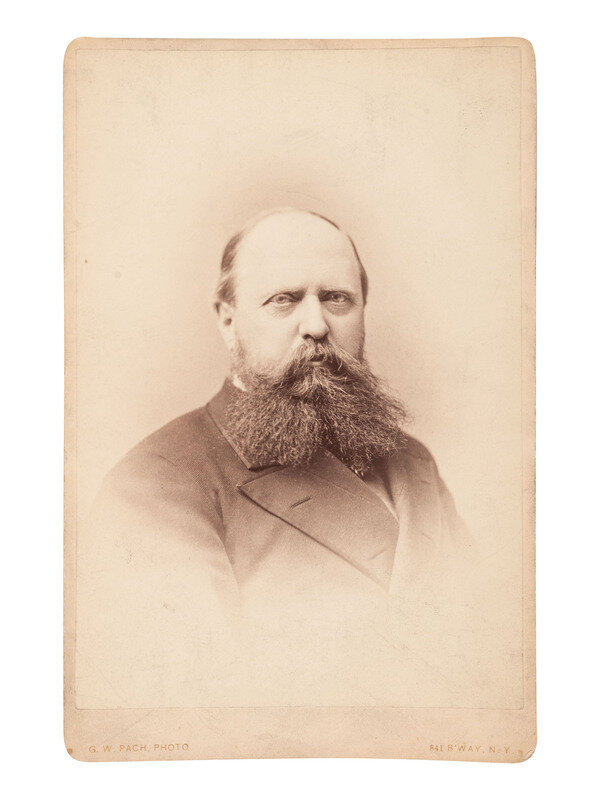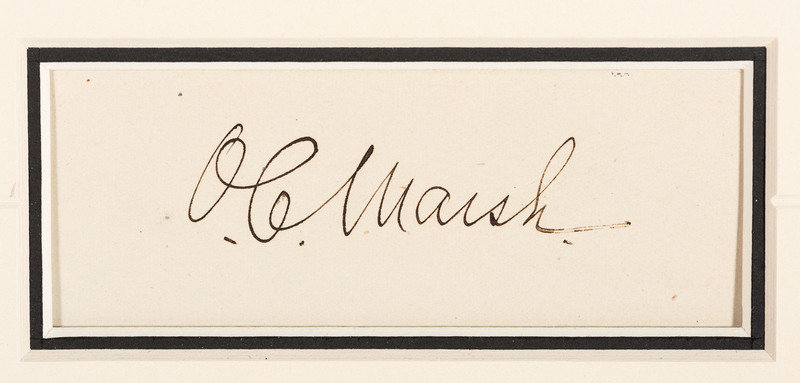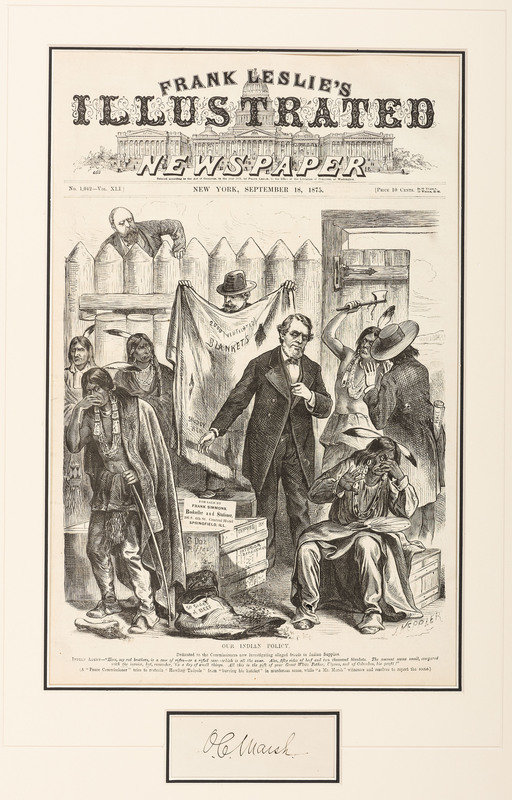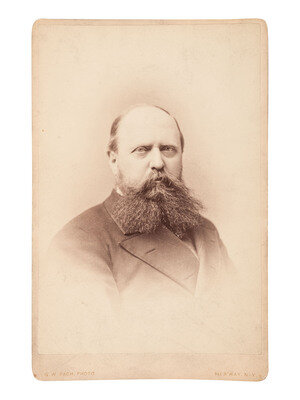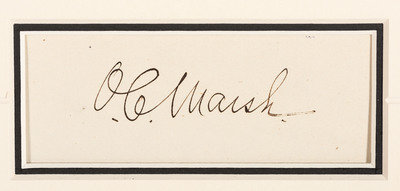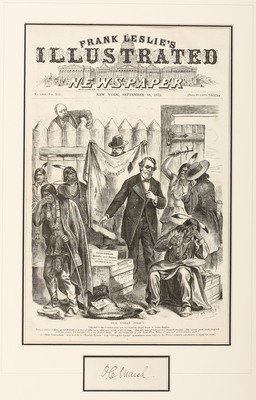Condition Report
Contact Information
Auction Specialist
Lot 350
Lot Description
Shoulder-length portrait of Othniel C. Marsh. New York: G.W. Pach, 1882. 4 x 5 7/8 in. cabinet photograph on cardstock mount with Pach's imprint on verso, which references branches at Harvard and Yale (light soiling, mount slightly curves upward, else very good).
[With:] Clipped signature ("O.C. Marsh"). 4 x 1 1/2 in. (sight), matted and framed together with the front page of Frank Leslie's Illustrated Newspaper, New York, 18 September 1875. The front page illustration, entitled "Our Indian Policy," includes a rendering of Marsh. 10 x 15 1/2 in. (sight), framed, 20 x 26 in.
Othniel C. Marsh (1831-1899) was born in Lockport, New York. Although his family was not wealthy, his uncle, George Peabody, certainly had financial resources. He studied geology and paleontology in the US and Europe, and persuaded his uncle to establish the Peabody Museum of Natural History at Yale, the institution with which he was associated for most of his career. A large inheritance received after his uncle's death meant that Marsh did not require a salary from Yale, and could spend time exploring rather than teaching.
In the early 1870s, Marsh received reports of abundant fossils in the Dakota Badlands region. The starting point for the Yale Expedition of 1874 was the Red Cloud Indian Agency, Wyoming Territory, named for the local Oglala Sioux war chief and leader. After some negotiations, Red Cloud was impressed by Marsh's honesty and commitment to only look for fossils, and Marsh was allowed to collect on Sioux lands. While in the Sioux encampment, Marsh viewed spoiled food rations and shoddy supplies provided by the US Interior Department, and heard many accounts of corrupt government officials and agents. This illustration offered here documents Marsh's observations. He is seen overlooking the stockade fence.
Outraged by treaty violations and the condition of the encamped Native Americans, Marsh reciprocated the generosity of his friend Red Cloud, and reported the government atrocities to President Grant, and more importantly, to the New York Herald newspaper. A full investigation followed, and the Oglala Sioux finally received the promised aid. Red Cloud later called Marsh "The best white man I've ever seen."
Together, 3 items related to the celebrated Yale University vertebrate paleontologist, Othniel C. Marsh.
